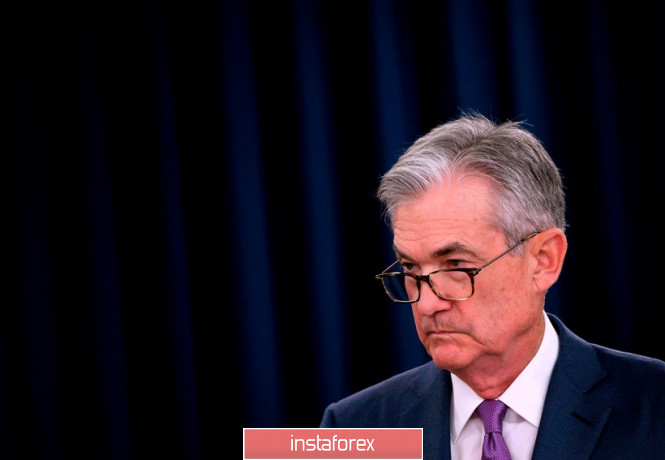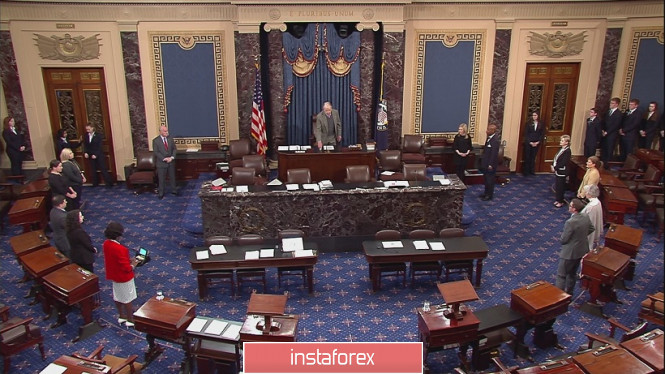The euro-dollar pair ignored the "minutes" of the October meeting of the Fed which was published yesterday. And although most of the theses voiced were in favor of the American currency, the market considered the document obsolete, in view of the recent events on the front of US-Chinese relations. Indeed, some of the wording of the minutes are irrelevant today, and this fact reduces the importance of the release as a whole. Nevertheless, if we exclude the "Chinese factor", we can conclude that the regulator is quite satisfied with both the level of interest rate and the growth rate of the American economy.

Speaking of the Fed's minutes, we can conduct an allegory with the stars on the night vault - basically we see the light of those celestial bodies that are no longer there. The American regulator, likewise, assesses the situation at the moment of "here and now", while the two-week time interval (from the moment of the meeting until the publication of the document) eliminates the relevance of the minutes. For example, regulator members, on October 31 (that is, at the time of the meeting), came to the conclusion that geopolitical risks, as well as trade uncertainty, significantly weakened, although they continued to affect the economy, restraining investment costs and exerting pressure on exports. It is worth recalling that there really was a period of "thaw" at that time, following the results of the US-Chinese negotiations. And despite the fact that the parties could not make a deal, they took several steps towards each other, and did not allow another escalation of the trade war. The meeting of the regulators was held almost immediately after the meeting of the delegations of the USA and China. Thus, their optimistic assessments were quite justified.
It was then, representatives of China and the United States announced in early November that they would not make significant concessions in the negotiations. The Americans refused to abolish the introduced duties, and the Chinese refused to fix the volume of planned purchases of agricultural products. And in general, the parties, following the results of the 13th round of negotiations, did not allow further escalation of the trade conflict, while the most complex and fundamental issues were not even discussed by the negotiators. Therefore, after a small surge of optimism, dollar bulls came to the reasonable conclusion that the prospects for the development of a trade war are still unclear. The recent events have only confirmed these concerns.
As you know, the US Senate unanimously passed a bill this week that actually supported the protesters in Hong Kong. This move aroused the anger of Beijing, which warned Washington that it would "take retaliatory measures" if the bill becomes law. At present, the document is in the House of Representatives, and if the congressmen agree on it (which is most likely), it will be sent for signature to the president. Considering the fact that all senators voted for the controversial bill, Trump is unlikely to reject it - the document will take the form of a law. In turn, currency exchange traders project these political events with the prospects of trade negotiations. According to most experts, the "Hong Kong issue" could significantly harm the negotiation process.

At the same time, information appeared on the market that "in opposition to the Hong Kong issue, the White House could postpone the introduction of December duties so that the parties would nevertheless continue negotiations on the remaining points of a possible deal ("phase one"). According to various sources, not everyone in the presidential administration supports this idea. In particular, the US trade representative Lighthizer takes a tough position: he has repeatedly stated that Washington needs to exert some pressure on the Chinese side until consensus is reached on all key issues. In turn, US Treasury Secretary Steven Mnuchin defends a softer position on China - apparently, he is the main lobbyist for the conclusion of the "preliminary deal". Thus, it is still unknown whose side Donald Trump will eventually take. So far, he has voiced a tough position, but at the same time, the president has repeatedly changed his opinion on a particular issue by 180 degrees. Therefore, the intrigue remains here, and the unexpected denouement of this plot can completely "redraw" the fundamental picture for the dollar pairs.
Thus, the market quite reasonably ignored the "minutes" of the Fed. If it were not for the "Chinese factor", it would be safe to say that the process of reducing the interest rate has been put on a long-term pause - at least until the end of next year. However, in view of recent events, it is impossible to say this with certainty.
This fact puts background pressure on the US currency - the dollar index shows a weak, but still downward trend. At the same time, the European currency also feels uncomfortable - in the event of another escalation of the trade war, the ECB may resort to additional incentives, as some representatives of the European regulators have already warned. As a result, the EUR/USD pair is actually frozen in the flat, continuing to be in the price range of 1.0980-1.1090.
The material has been provided by InstaForex Company - www.instaforex.com